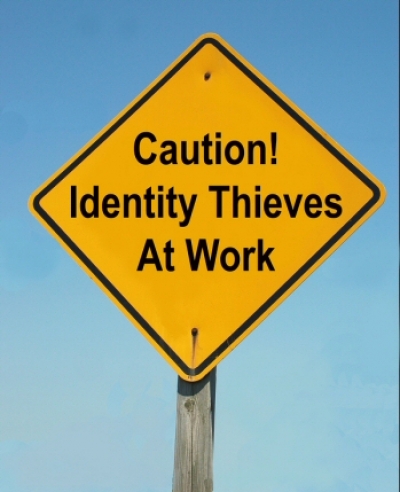According to the U.S. Postal Inspection Service, identity theft is now the fastest growing crime in America. It can include credit card fraud, Internet fraud, mail theft, among other crimes; and in 2012 at least 9.9 million Americans were victims with a loss of about $5 million. Identity thieves steal your personal information which could include your Social Security Number, credit card numbers, or your bank account data including ATM PIN code. You have likely been warned about this crime, and you may think you are careful with your information; but identity thieves are becoming more and more clever at getting what they want.
One method these criminals might use is called "shoulder surfing" where the thief simply stands near you as you use your bank’s ATM, watching as you enter your PIN. Listening in on your phone conversation as you make a purchase and give your credit card number is another thieves’ trick. In fact, with cell phones, a thief can appear to be innocently texting or talking on the phone while actually snapping pictures of your credit cards or record your entire conversation.
Cyber criminals often now use online "phishing" (pronounced “fishing”) to capture your personal information. The cyber thief sends e-mails appearing to be from legitimate banks or credit card companies, often indicating that there is a problem with your account. They usually provide a link to a fake website – made to appear official – where they ask you to "verify" your account by providing your Social Security Number and/or other confidential information. If you comply, then your identity is stolen before you even know it.
A low-tech, less sophisticated way used by some ID thieves is "dumpster diving" -- going through dumpsters to find bank statements, checks, credit card statements or other items that contain your address and account number.
As identity criminals find more ways to ply their crime, it is important to remain aware and do what you can do to protect yourself: The following are a few common sense suggestions from the International Risk Management Institute Inc.
- If you must provide confidential information over the phone, be sure you know who you are speaking with; and check to be sure no one is close enough to hear your conversation – even if they do not seem to be paying attention.
- When using an ATM, ensure that no one is near enough to see the keypad and screen.
- Shred all documents and bills containing personal information before you throw them away.
- When you receive e-mail requests for your confidential information, be sure to call the sender or otherwise contact the institution directly first. Never respond to an e-mail to provide any information unless you are completely sure who is receiving your e-mail.
Despite your best efforts, you could become a victim of identity crime, so it’s important to consider protecting yourself with Identity Recovery Insurance before you need it. Many major insurance companies offer the coverage. So check with your insurance agent to find out how you can be best protected.
Here in Lutherville – Timonium (MD) at the William M. Sparks Insurance Agency, our agents are familiar with Identity Recovery insurance and can help you explore your options at your convenience. Contact us for information or to discuss how we can help.


 William M. Sparks 1945 - 2023
William M. Sparks 1945 - 2023



